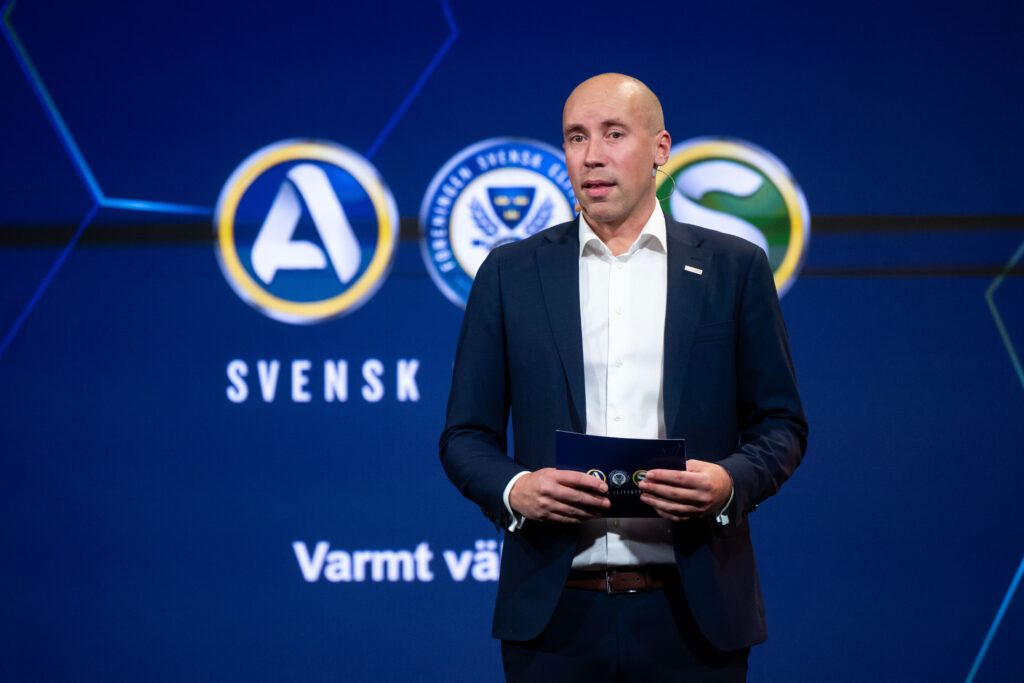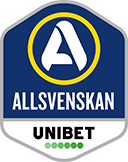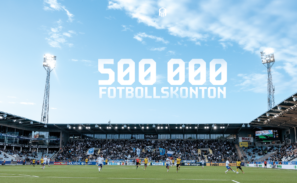The European Court of Justice states that UEFA and FIFA have abused their dominant positions and opens up the possibility that other leagues have the right to exist, which in theory opens up a new football climate in Europe. Swedish Professional Football Leagues believes that it is important to protect the basic principles of openness and that qualification for international club competitions should take place via annual domestic competitions.
“We are likely facing a major crossroad. The basic question that you have to go back to is for whom is football for?”, says Simon Åström, chairman of Swedish Professional Football Leauges.
Swedish Professional Football Leauges is a member of the European Leagues and acts there as a representative for Allsvenskan and Superettan. Together with the European Leagues and other stakeholders in European football, Swedish Swedish Professional Football Leauges works actively with issues related to the football ecosystem, such as working for a good balance between domestic leagues and international club competitions and relevant, solidarity economic distribution models.
“We are mapping out the exact consequences of yesterday’s verdict together with the Swedish FA, the European Leagues and UEFA. As a consequence of the legal process, UEFA has in recent years updated its regulations and working methods to better comply with the legislation that applies at EU level. UEFA’s first impression is that yesterday’s ruling does not come with anything to overturn it, and that UEFA’s way of dealing with competition structures is now aligned with what the ruling states. We will see exactly at what level it applies and how it needs to be further developed in the coming time”, says Simon Åström.
In its verdict, the European Court of Justice leans heavily towards the fact that the football structure must be able to live up to being “transparent, objective and non-discriminatory”. Swedish Swedish Professional Football Leauges considers these to be good and important values that will hopefully lead to all players researching and adapting further so that the world will have better football.

The judgment in the EU court comes after A22, which represents the so-called Super League, legally challenged UEFA’s competition monopoly. The European Court of Justice opens up the possibility for competing leagues to operate in the market, but also makes it clear that it does not take a position for the Super League in particular.
“If you judge that today’s model, which is under UEFA, does not live up to the requirements for openness, then we can state that the so-called Super League definitely does not. It is based on a more closed system that reduces the accessibility for clubs and leagues to reach the highest possible level, it will increase the financial gap between the biggest clubs and the smaller ones, and it will affect the possibilities of maintaining strong national leagues”, continues Simon Åström .
The image of Swedish Professional Football Leagues is that the domestic leagues are the heart for football interest. This is the place were Swedish supporters and clubs should and can dream of success. It is through the national leagues that clubs can qualify for the biggest international club team tournaments. That openness in the structure, and with the premise that it is always sporting results that qualify teams for a certain level is worth fighting for.
“After yesterday’s verdict, we can state that there is a great deal of agreement between football’s stakeholders. Yesterday we had meetings with UEFA, the European Leagues, ECA, the players’ union FIFPRO and the European Supporters’ Union, where everyone strongly and in unison stood behind today’s model. It is not perfect, and of course football’s governing body needs to develop and adapt to live up to laws and requirements for transparency. But the alternative involves a much greater risk. To think that breakaway leagues would have greater incentives to develop football in general instead of being driven by financial incentives is naive”, believes Simon Åström and continues.
“We are likely facing a major crossroad. The basic question that one must go back to is for whom is football for? Is football for owners and investors who want to optimize their returns? Or is it for all supporters and young football players? I know what I believe in. Today’s model is far from perfect, but it is based on compromises between all stakeholders. It allocates clear funds to youth football, it has built-in solidarity mechanisms to give back to smaller associations, leagues and clubs and strives to find a sufficient balance. There is a lot to develop, definitely. Both regarding balance and solidarity, openness and more. But the risks in dividing football up are that development is accelerated in the wrong direction. Hopefully this leads to greater humility and a desire to develop, but within the framework of the existing system”.
















